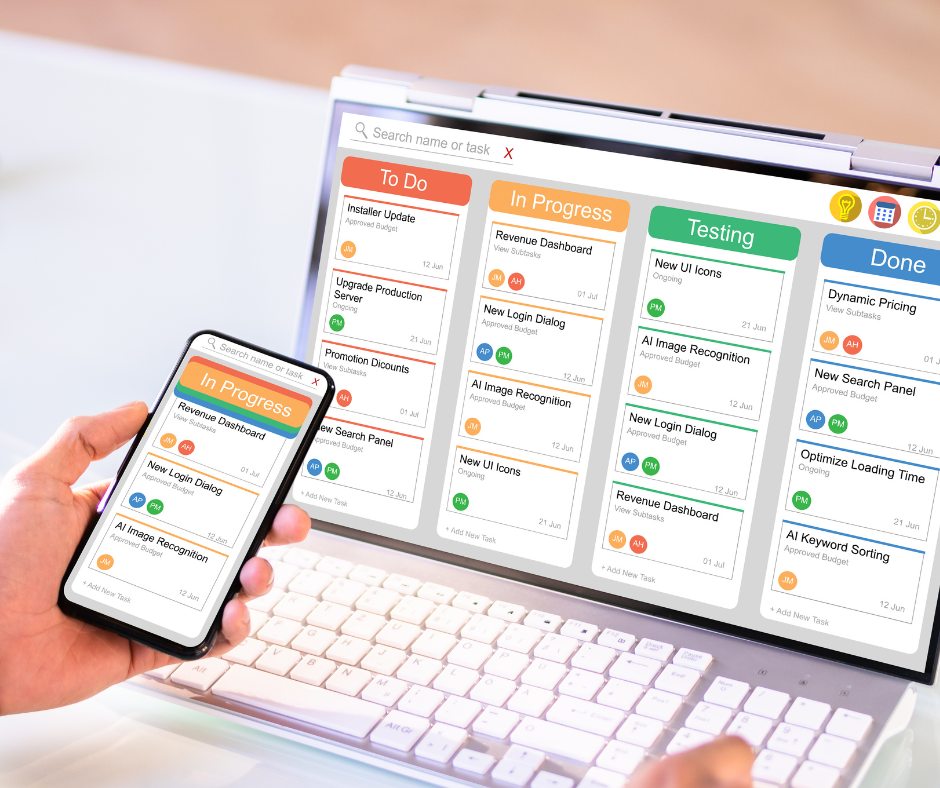Customization Options in Modern Project Management Platforms
Modern project management platforms have evolved significantly to meet the diverse needs of construction professionals worldwide. As teams grow more complex and projects become increasingly sophisticated, the ability to tailor software solutions to specific workflows, reporting requirements, and organizational structures has become essential. Customization capabilities now determine whether a platform can truly support a company's unique processes or simply offer generic functionality that requires workarounds.

The construction industry has witnessed a digital transformation over recent years, with project management platforms becoming central to operational efficiency. These systems now offer extensive customization features that allow companies to adapt software to their specific requirements rather than forcing teams to conform to rigid, one-size-fits-all solutions. Understanding available customization options helps organizations maximize their technology investments and improve project outcomes.
Navigating the Landscape of Construction Software: A Comprehensive Guide for 2025
The construction software market in 2025 presents numerous options, each offering varying degrees of customization. Modern platforms typically provide configurable dashboards, custom field creation, and workflow automation capabilities. Users can often modify data entry forms, create project-specific templates, and establish custom approval chains that mirror their organizational hierarchy. Cloud-based solutions have made these customizations more accessible, allowing administrators to make changes without extensive technical knowledge or costly developer involvement.
Integration capabilities represent another critical customization dimension. Leading platforms now offer application programming interfaces that enable connections with accounting systems, document management tools, and specialized construction applications. This interoperability allows companies to build cohesive technology ecosystems where data flows seamlessly between systems, reducing manual data entry and improving accuracy across operations.
Evaluating and Selecting the Right Construction Software
When assessing project management platforms, organizations should examine several customization factors. User permission settings allow administrators to control access levels based on roles, ensuring sensitive information remains protected while giving team members appropriate visibility. Custom reporting capabilities enable stakeholders to generate insights specific to their needs, whether tracking budget variance, schedule adherence, or resource allocation.
The flexibility of notification systems also matters significantly. Customizable alerts ensure team members receive timely information about changes, approvals, or issues without being overwhelmed by irrelevant notifications. Advanced platforms allow users to define trigger conditions, specify recipients, and choose delivery methods for each notification type.
Mobile customization has become increasingly important as field teams rely on smartphones and tablets for daily operations. Platforms that allow customization of mobile interfaces, offline functionality, and data synchronization settings provide better support for workers in remote locations or areas with limited connectivity.
Understanding the Different Types of Construction Software
Project management platforms vary considerably in their customization approaches. Some systems offer extensive out-of-the-box functionality with limited modification options, suitable for organizations seeking standardized processes. Others provide highly flexible frameworks that require significant configuration but can be tailored precisely to unique workflows.
Specialized construction platforms typically include industry-specific features like submittal tracking, RFI management, and punch list functionality. The degree to which these features can be customized affects how well the software aligns with established company procedures. Organizations should evaluate whether they can modify terminology, add custom fields to standard forms, and adjust workflows within these specialized modules.
General project management tools adapted for construction use often provide broader customization capabilities but may lack industry-specific features. These platforms excel at task management, collaboration, and document sharing, with extensive options for creating custom project structures, fields, and views. However, they may require more configuration effort to support construction-specific processes.
Real-World Platform Comparison
To illustrate the range of customization options available, here is a comparison of typical project management platforms used in construction contexts:
| Platform Type | Customization Level | Key Features |
|---|---|---|
| Industry-Specific Platforms | Moderate to High | Pre-built construction workflows, customizable forms, industry templates |
| Enterprise Project Management | High | Extensive API access, custom modules, advanced automation |
| Collaborative Work Management | Moderate | Custom fields, workflow templates, integration marketplace |
| All-in-One Business Platforms | Variable | Configurable modules, role-based customization, scalable options |
Prices, rates, or cost estimates mentioned in this article are based on the latest available information but may change over time. Independent research is advised before making financial decisions.
Implementation Considerations for Customized Solutions
Successful platform customization requires careful planning and execution. Organizations should begin by documenting current workflows, identifying pain points, and defining specific customization requirements. Involving end users throughout the configuration process ensures the final solution addresses actual needs rather than theoretical improvements.
Testing customizations in controlled environments before full deployment helps identify issues and refine configurations. Many platforms offer sandbox or testing instances where administrators can experiment with settings without affecting live projects. This approach reduces disruption and allows teams to become familiar with changes before they impact daily operations.
Ongoing maintenance of customizations requires attention as well. As companies evolve and software platforms release updates, periodic reviews ensure customizations remain relevant and compatible. Establishing clear documentation of all modifications helps with troubleshooting, training new users, and maintaining consistency across the organization.
Balancing Customization with Usability
While extensive customization capabilities offer significant benefits, organizations must balance flexibility with usability. Overly complex configurations can confuse users, slow adoption, and create maintenance challenges. The most effective implementations customize strategically, focusing on modifications that deliver clear value while maintaining intuitive interfaces.
Standardization across projects and teams also deserves consideration. Excessive variation in how different groups use the same platform can hinder collaboration and complicate reporting. Establishing baseline configurations with controlled variation points helps maintain consistency while accommodating legitimate differences in project types or team needs.
Training becomes more critical as customization increases. Users need clear guidance on how customized features work, when to use specific options, and how modifications affect their workflows. Investing in comprehensive training programs ensures teams can fully leverage customized capabilities rather than reverting to familiar but less efficient methods.
Modern project management platforms offer unprecedented customization opportunities that enable construction organizations to optimize their digital tools for specific needs. By carefully evaluating options, planning implementations thoughtfully, and maintaining appropriate balance between flexibility and usability, companies can create technology environments that genuinely support their unique processes and contribute to project success.




